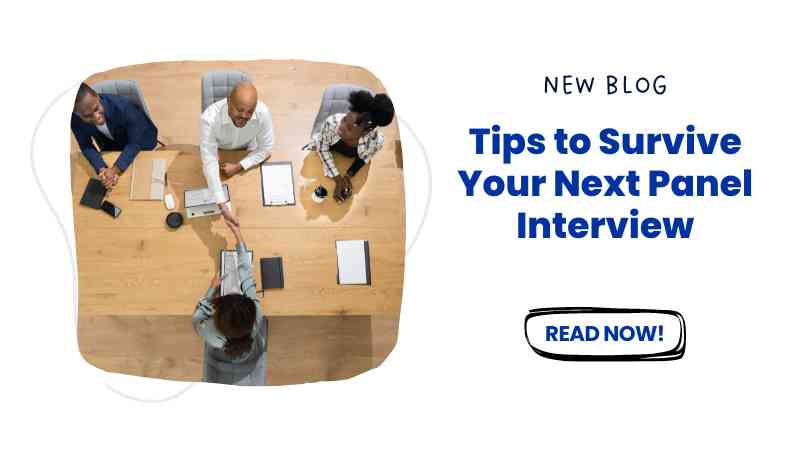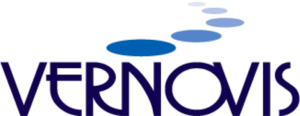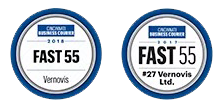
After submitting resume after resume, you’ve finally landed an interview for your dream job. While the job prospect excites you, the thought of a one-on-one interview makes you a little anxious. But then your potential employer lets you know that a panel of people, not just one, will conduct your interview, and instantly you feel your blood pressure rise.
Sound familiar? If you haven’t had the pleasure of being grilled by a group of people on a job interview, you’re in the minority. These days, panel interviews are a common way for companies to evaluate potential candidates as they look for better and faster ways to assess talent. Since your chances of encountering a panel interview are high, we’ve put together a few quick tips to help you feel more confident when going in for your next one.
Why are Panel Interviews so Popular?
As the name suggests, a panel interview is a meeting with a potential employer that includes more than one interviewer. Typically, panels have two to five participants, with one person leading the discussion, while the other panelists, usually senior employees representing different departments or specialties, participate and evaluate the candidate.
In addition to increasing efficiency and reducing costs, companies rely on these multi-person interviews to get different points of view from stakeholders and cut down on possible biases. It’s also a way to see how a candidate behaves and performs under pressure, as well as how well they get along with other people. With the rise of remote work and virtual hiring processes, things have gotten even more complicated. Panel interviews have moved online, and video or teleconference interviews are now the norm.
5 Tips to Ace a Panel Interview
A panel interview is good for the employer in many ways, but it makes things harder for the person being interviewed. Assessing multiple evaluators and developing a rhythm and rapport with each is more challenging than getting to know just one. Still, acing a panel discussion is possible. Here are a few tips to help you thrive during your next panel interview.
Research the company and panel members: Try to find out who will be on the panel and their roles in the company. Sometimes, you will be informed of who will be interviewing you, but this is not always the case. If you don’t know who will be on your panel, look at the job description and responsibilities. Think about what other departments and people you might work with every day in the role. Some of those stakeholders will almost certainly be on your interview team. Ask yourself what qualities and characteristics these stakeholders might want to see in you as a colleague. As you research the company and the job position, have your own questions ready to ask the panel and some examples of your previous work or experiences that are relevant to the job.
Listen carefully: While your focus will undoubtedly be on how you answer each question, it’s important that you also listen very intently to each panelist. As introductions are made, pay special attention to each interviewer and listen to each question’s context and intent. This might give you some indication as to what is important to the panelists and what criteria they are evaluating you on.
Expect follow-up questions. Panel interviews tend to produce more follow-up questions than one-on-one interviews. Multiple interviewers mean more questions. One line of inquiry can prompt additional questions from others. Expect this to happen, and be ready with different examples and accomplishments that show your background, work history, and skills.
Practice your body language: During a panel interview, make eye contact with each panel member. Maintaining good posture is important and shows you are engaged and confident.
Be aware of your tone and pace: Sometimes, panel interviews seem more like a rapid-fire grilling, with each interviewer competing to get their questions answered. In this situation, it’s essential to stay poised. Avoid speaking too fast or too slowly, as this can make it difficult for the panel members to understand you and make you seem nervous. In the case of rapid-fire style interviews, try to the main points and achievements quickly, and avoid interrupting or talking over the panel members.
After you’ve aced your interview, send each panelist a short thank you note reiterating your interest in the job. Then sit back, relax, and wait for a positive response.
Conclusion
Panel interviews may be a little harder for job candidates, but they can also offer important insights into that dream job with a future employer. Through the interview process, you’ll get a better glimpse into how the company functions as you observe how the interviewers communicate with one another and how they might work as a team. So don’t live in fear of your next panel interview. Welcome it. Follow the tips above and feel confident in yourself as you interview for your next job.
If you’re in the market for a new and exciting job opportunity, don’t forget Vernovis, We are more than a recruitment service; we enhance your ability to develop your professional brand and value proposition. We represent IT, cybersecurity, accounting, and finance professionals, helping them achieve their career goals by matching them with critical projects and dynamic jobs in Ohio and the Midwest. Learn more about our services or reach out today.






